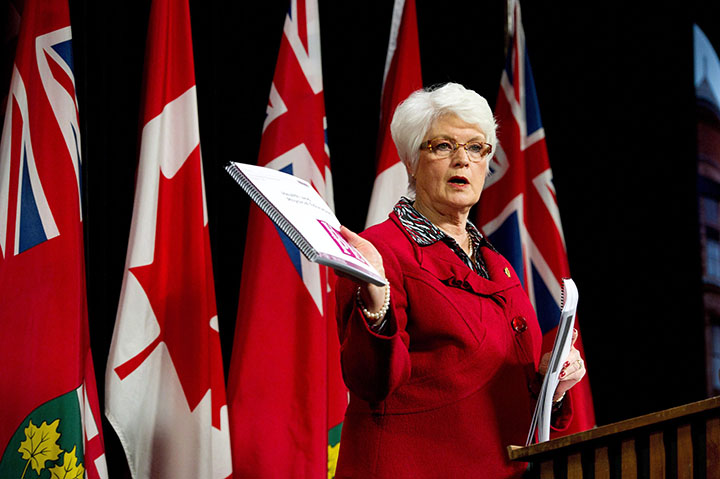Ontario Education Minister Liz Sandals’ controversial $2.5 million payout to education unions, which has been characterized as a bribe for labour peace, has raised eyebrows and has recently come under fire – understandably so.

The bargaining techniques employed by the province are no doubt counter-intuitive and opposed to the interests of taxpayers and employers.
A payout of this kind and magnitude to cover the expenses of the lengthy collective-bargaining process the parties have engaged in, primarily due to the government’s implementation of a two-tiered bargaining system, is certainly unusual, despite Sandals’ assertions to the contrary.
Of course, it raises all kinds of questions.
READ MORE: OSSTF support staff refuse to withdraw job action in face of ‘threats’ of wage cuts
Does the province’s payout give the teachers’ unions an incentive to cut a bad deal or sell out member rights? Does it create a divide between the teachers’ unions and its members? Shouldn’t the issue of costs be determined by an independent third party, as opposed to being determined unilaterally by the self-interested province?
The short answer to all of these questions is: absolutely.
Perhaps even more problematic is the question of whether such payouts to the unions are legal.
Taken at face value, Sandals’ doling out of millions of dollars to force the unions to the bargaining table is inappropriate, and in violation of provincial labour laws.
The Ontario Labour Relations Act governs labour relations in the province. This Act explicitly prevents unfair interference with trade unions and precludes employer financial support or contribution to the union. This is determined primarily on the consequences that flow from any unfair or unlawful interference with trade union activity, employer financial support included. The province is no exception to this rule.
WATCH: Ontario government continues to defend payouts to unions
The Ontario Labour Relations Board, the tribunal that adjudicates labour relations matters in the province, has in the past determined that certain employer-paid costs for labour relations matters were akin to “undue influence” on the parties, in violation of the Act. The primary concern in these situations is the maintenance of the impartiality of the parties coming to the table, as employer-paid financial incentives – particularly those with multi-million-dollar price tags – will undoubtedly taint the collective-bargaining process.
Needless to say, the Education Minister is staunchly defending her decision to grant this hefty public subsidy to the unions in order to force them to the bargaining table. Only recently have there been discussions about requiring an accounting of the unions’ costs.
READ MORE: Ontario elementary teachers, support staff reach tentative deal, end strike action
But, since unions require union dues from their members in exchange for their representation, the unions should be looking to their members to cover the costs of protracted negotiations. Why should the government be permitted to remedy its mistakes at the taxpayers’ expense and allow education unions to double-dip into the public purse?
In light of these issues, it will be critical to closely monitor the process and outcome of the collective bargaining negotiations in order to assess the legality of the province’s questionable actions. After all, we’re footing the bill.
Howard Levitt is an employment lawyer and senior partner at Levitt Grosman.



Comments